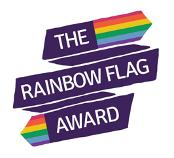




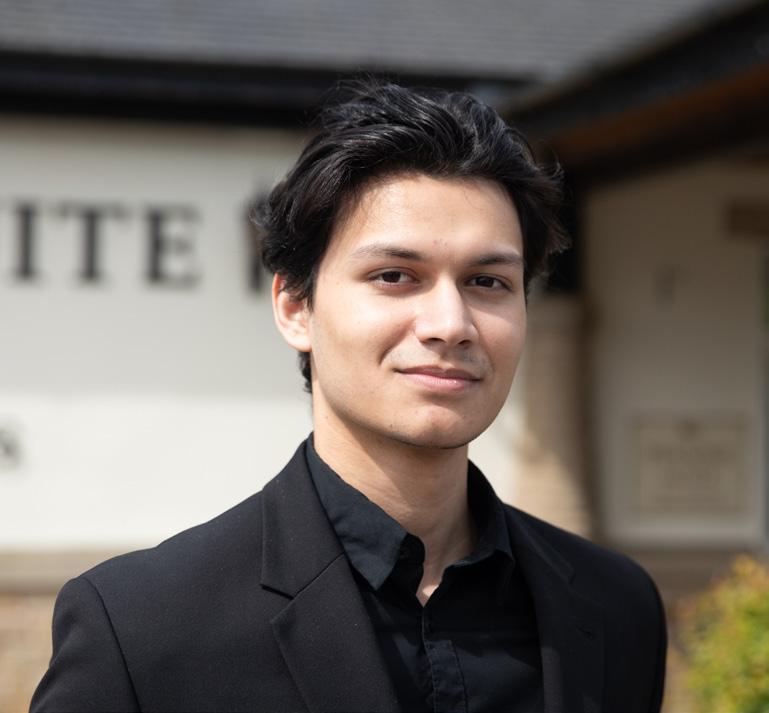







Bolton College has a long standing reputation for commitment to and the successful implementation of strategies to widen access and participation of all students within the community we serve. The College recognises the value of education in transforming people’s lives and we actively embrace our role in the promotion of educational opportunities for all through our key values of:
• Excellence in all we do
• Ensuring learning and the student are at the heart of everything we do
• Equality of opportunity and celebration of diversity
• Serving our community
• Honesty and professionalism
• Caring for the environment and the communities we serve.
The College highly values the breadth of experience and diversity of all its applicants and students across the full range of courses on offer including Higher Education students.


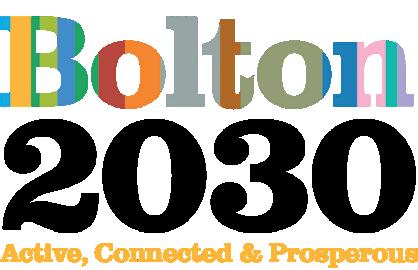
Bolton College works with a wide range of public and private sector organisations, including the ‘Bolton Family’, to meet the education and training needs of Bolton, its geographical, cultural and business communities. We will fulfil our commitment to Bolton’s wider ‘Vision 2030’ agenda of growth, partnership and protection of the vulnerable.
The College will continue to work with the University of Bolton, as part of the University of Bolton group, in order to optimise our relationship to ensure students have pathways from any point in the curriculum to reach their full potential.
The College seeks to contribute to the education and training needs of the region and sub-region and, in relation to some niche markets, it will play a national role. We will support social and economic regeneration and contribute to measurable business success and community cohesion through the provision of flexible, innovative and responsive high quality training opportunities, working in partnerships with employers, local communities, key agencies and training providers.
We create a high quality learning experience, driven by a culture of continuous improvement, by providing inspirational, cutting edge teaching and learning which is responsive to the needs, interests and experience of all students and leads to success. We widen participation and increase access to lifelong learning opportunities in education and training at a variety of locations and assist all our students to reach and maximise their full potential and progress in their learning and employment.



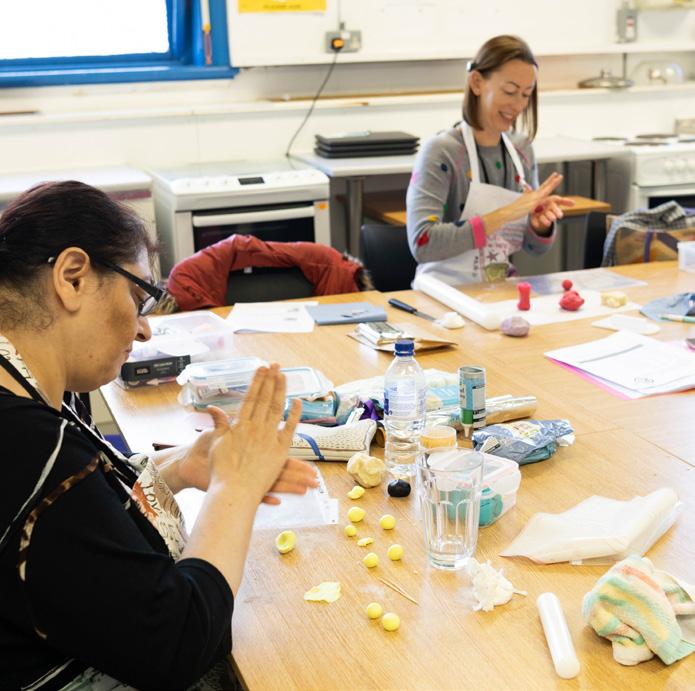
The move to ‘Designated Institution’ status, as part of the University of Bolton group, was a significant achievement. The Department for Education approved the model with Bolton College as a designated subsidiary company limited by guarantee (called Bolton College) which is eligible to receive public funding which is a necessary step in order to operate a publicly funded further education college.
The College became a designated institute (being a company limited by guarantee) under the company name ‘Bolton College’, as set out in the Consultation, and transferred its property, rights and liabilities to the new company all with effect from 1st August 2018. The company continues to operate the College from its current sites.
The first merger of its type in England provides a high level of security and opens new opportunities for the community we serve. The long-term goal for a genuine ‘cradle to PhD’ seamless education route is now a step closer.

An example is that adult students are able to start off on short, non-accredited courses within the community to build up entry level skills and confidence before moving over to qualification based provision in the College. Our younger students are able to access our Foundation curriculum in order to build their skillset and confidence before progressing to higher level courses.



 4. Bolton College
4. Bolton College
All courses are carefully mapped to enhance employment and progression opportunities with seamless routes to College and University of Bolton provision, including higher and degree apprenticeships. Students have clear progression routes along with regular information, advice and guidance in order to enable them to make informed choices about the direction of their futures.
Facilities for our Higher Education students ensure their needs are met. Our unique location within Bolton’s Education Zone and close locality to the University of Bolton means that our Prescribed HE students are able to benefit from, enjoy and utilise both the College’s and University’s range and wealth of facilities.
Bolton College provides high quality vocational training to enhance qualifications, skills and employability. With over 800 full- and part-time courses to choose from, delivered at four main centres around Bolton, we’re confident that we have something to suit everyone. We continually strive to improve and strengthen what we do best, so that we can help more students and students to achieve their ambitions in the future.




The College is a member of GM Higher, a collaboration of five universities and eight further education Colleges from across Greater Manchester, who are working together to provide high-quality outreach activities for local schools and Colleges as part of the National Collaborative Outreach Programme (NCOP).
GM Higher aims to improve the provision of information, advice and guidance about progression routes to higher education (HE) and provide information about the variety of HE options for students.
This work contributes towards the Government’s goal of doubling participation in HE among those deemed to be from ‘disadvantaged backgrounds, with targeting based upon learner postcodes.




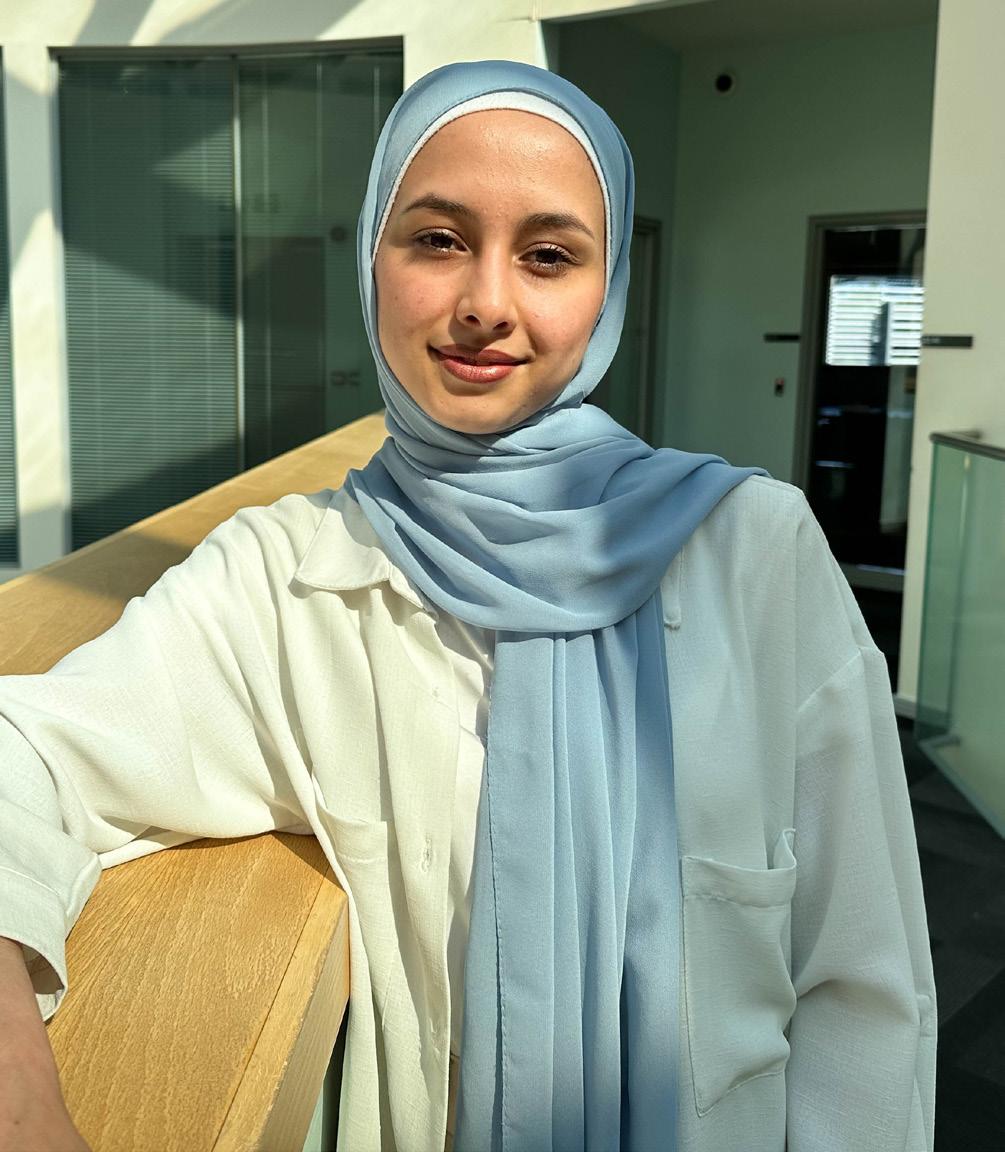
Bolton College recognises and values the cultural, social and ethnic diversity reflected in our students and staff. As a result, we treat all with respect and dignity, and seek to create a positive learning and working environment. We provide a safe and supportive environment which values individuals equally, regardless of protected characteristics and socio-economic status.
The College is home to people from a wide range of cultures and backgrounds with diverse beliefs, values and abilities. We aim to meet the needs of all individuals and encourage them to share their experiences and beliefs.
We welcome students with learning difficulties and disabilities and support them according to their needs. We work collaboratively with a range of community organisations and other partners to tackle social exclusion, address discrimination and promote community cohesion. The college has achieved the NNECL quality status in recognition of the work we do in supporting ‘care experienced young people.’

Work towards the Care Leavers Covenant is in progress and in collaboration with Greater Manchester Combined Authority. Our care leavers progressing to Higher Education provision come from a range of GM local authorities and benefit from financial support of at least £2,000 over a period of three years for an undergraduate course. This is accessed through funding under the local authority B model.
However, some GM local authorities are now moving towards local authority A funding which is a total of £4310.80 per year of study plus additional financial support including support to attend open days and admission interviews, travel costs at start and end of term paid for, guaranteed access to the internet and money towards the cost of graduation. Over the next couple of years, all GM local authorities should be working under local authority A funding.
We want everyone to feel comfortable and secure enough to be themselves; we do not tolerate harassment, bullying, victimisation or discrimination. Our Single Equality Scheme incorporates the goals of our College Equality and Diversity Strategy; this document is available online within our Key Policies section and is currently in the process of being updated, along with the action plans, in order to fully reflect Bolton College’s Strategic Plan.
The College’s commitment to wellbeing and embedded at trauma informed approach continues with the implementation of the staff and student Wellbeing Strategy. The College has continue to increase the work and training for all staff and widening services for learners through wellbeing mentors and co-ordinators.
We have formed and established links with charitable organisations, providing guest speakers to cover aspects of wellbeing and mental health. An example of this is a cross-college session with Whysup, who visited the college and shared their lived experience stories and delivered key messages on mental health, wellbeing and resilience.
As well as guest speakers, charitable organisations also hold information stalls in our Atrium during Fresher’s Fair and at different points throughout the academic year.
There are well designed transition arrangements for all courses and students that ensure all support needs are identified with appropriate arrangements in place before the course starts.
When students arrive in College there is a robust induction programme to ensure all students are equipped with the knowledge, support and guidance needed to make them successful and enjoy their time at College.
In order to achieve our goal we have identified key widening participation priorities:
• Effective and targeted marketing
• Fair and effective admissions policy and process
• Simple and affordable fee structure; and targeted financial support
• Tutorial and additional support to improve student attainment and continuation rates
• Progression and Growth
• Evaluation of Widening Participation




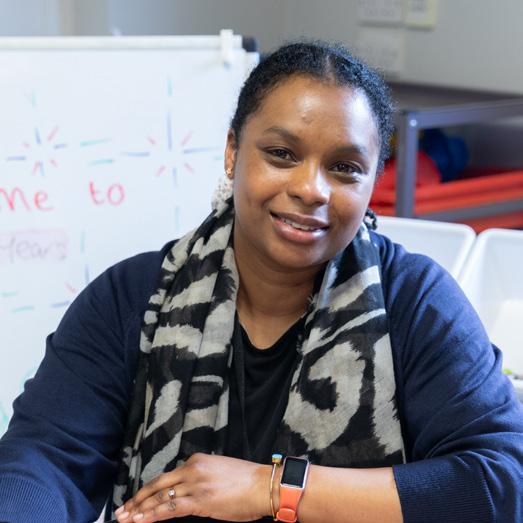

The College has carried out a great deal of targeted marketing to make sure that potential students are fully aware of our Higher Education (HE) offer. The HE section of the College has a presence at all College open days; and works in collaboration with the University of Bolton, and the Greater Manchester Higher Network, to promote our HE courses. The College also promotes internal progression pathways from our range of relevant and appropriate pre-HE courses.
We market our HE courses via social media, both locally and nationally, and target local communities with a series of brochures that include our HE provision. The College’s Access to HE and HE offer for courses registered with the University of Bolton are also advertised on the University of Bolton’s website which gives the provision additional reach.

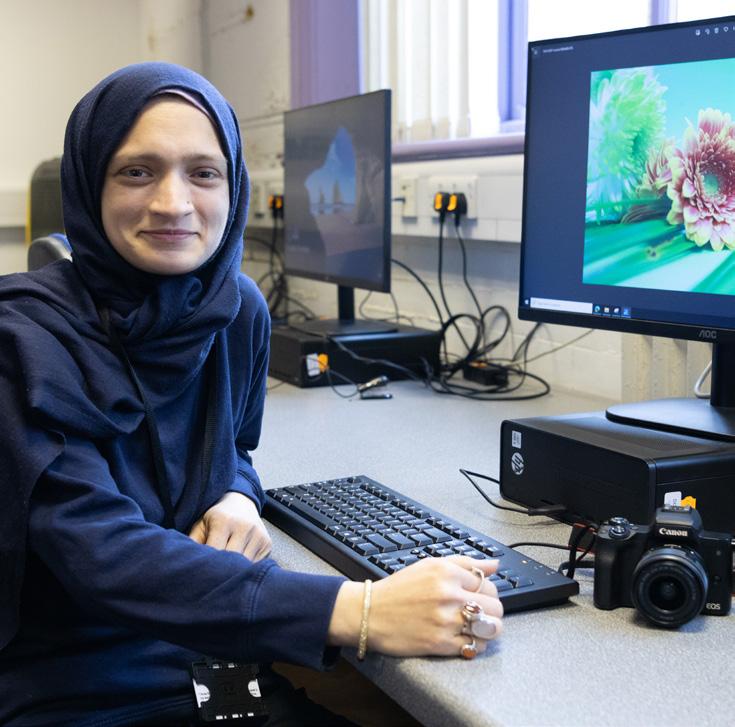

We have a strong track record of serving the needs of local employers and businesses by providing high quality Higher Education which develops the right skills and attitudes that are required in today’s employment landscape.
We also enhance employability opportunities for our students through using our wide network of professional contacts. We have high quality guest speakers who are experts in industry attending classes or delivering seminars such as HP, Parotec Technologies, Scan Computers, Network Rail, Amey, Highways England, Redrow Homes, MBDA, BAE Systems, Magnesium Electrode and our staff and students also are able to attend industry-led and research informed events at the University of Bolton.

We have embraced the new Higher Technical Qualifications (HTQs) which are more practical, employer-led programmes and are approved by the Institute for Apprenticeships and Technical Education (IfATE). The HTQs are approved against occupational standards decided by employers and the College has worked closely with local and national employers to design appropriate and relevant assignment briefs to really prepare students for working in industry. Our HTQs have been validated through the University of Bolton and further maximise the benefits of the University Group.
The College has participated in a Greater Manchester College’s Group project to develop short level 3 courses that stimulate interest in study at level 4 so the GM gap of level 4 professionals can be targeted.
We participate in industry-based enrichment activities to ensure the students are aware of current and emerging technologies. For example, we work closely with the UoB’s National Centre for Motorsports Engineering to support learner advice and guidance, engage in masterclasses and participate in enrichment opportunities which exemplify the highest and most relevant industry standards.
Higher Apprentices benefit from monthly deep dives by the Employer Engagement Advisors to ensure that employers are always aware of the most recent training course content so apprentices can utilise the skills, knowledges and behaviours gained within their jobs to maximise their application and enhance their employment experience.
Staff have the opportunity to complete industry updates which ensures currency with new technologies and market trends. This links in well to the University of Bolton’s ‘Teaching Intense, Research Informed’ philosophy where emphasis is placed on the support and empowerment of tutors to develop innovative and effective learning, teaching and assessment strategies, which are underpinned by cutting edge research and scholarly activity. We work closely with employers to select delivery models and inform curriculum content
Many students are offered real work placements to support their learning and give them an opportunity to apply their newly taught skills.
The College operates a fair admissions policy with clear entry criteria for its programmes/courses. When attracting students from a wide range of non-traditional backgrounds, all Prescribed HE applicants are considered via the University of Bolton’s Admissions Policy and Non-Prescribed HE applicants are considered via Bolton College’s Non-Prescribed HE Admissions Policy.
Applicants under both policies are considered via their individual merits including their qualifications, personal statement, references, experiences, and also includes accreditation of prior learning. We work very closely with the admissions staff at the University of Bolton to adhere to and to ensure applicants are aware of all the stages of the process. Applicants can be supported if they have enquiries about the process by College and/or University of Bolton staff.
Our Programme Areas may also use an interview and/or assessment as part of the decision making process for those who do not meet qualification on entry requirements. Applicants with nonstandard qualifications will also be considered where they have significant professional or vocational experience within their chosen subject area.
If we have potential students for whom a HE qualification is not appropriate when they apply advice is available on how they can gain the appropriate skills/ knowledge or qualifications to enable them to make a successful application in the future. Where students do not meet the entry criteria, the College supports the student in identifying a suitable alternative programme of study that will enable access to Higher Education in the future. As an example we have developed a portfolio of Access to HE courses, and pre-HE courses that can feed into our HE courses.
The College will ensure that students are not discriminated against during the admissions process or during their time at the College.




The College aims to provide the best possible service for its students while maintaining the tuition fees at an affordable level. The College is keen to maintain this value for money approach in order not to deter potential students, particularly those from non-traditional backgrounds as tuition fees grow in other Higher Education Institutions (HEIs).
However, we also need to ensure that we can cover the cost of teaching these students, who typically need more support particularly during the first year of the course. The College provides financial support, through the HE Hardship Fund, for those students who are experiencing unexpected financial difficulties. For example, to:
• Meet specific course and living costs which are not already met from other sources;
• Assist if students are in financial hardship;
• Provide emergency payments for unexpected financial crises;
• Help students who may be considering giving up their course because of financial problems.
We also provide financial incentives (Higher Education Progression Award) to our pre-HE level course students, to progress onto a HE course at College.
Another key part of our priorities is in the provision of tutorial and ‘other’ support that students are entitled to. With full-time and part-time students this can be achieved in traditional ways using a timetabled session.
For our full-time and particularly part-time students, who often work long hours, and/or are employed and wish to maximise their time at College studying, tutorials can be facilitated via email and through the Virtual Learning Environment, although tutors are available when required for face to face tutorials. We do encourage students to speak with their tutor/s when they need additional support, or are experiencing personal or challenging difficulties.
Students are signposted to the College counselling service, careers service, student support service, learning support services, and learning support is available in all our Learning Resource Centres (LRC) and library. In additional, all students enrolled to Prescribed HE take part on the University of Bolton’s induction sessions and have full access to all services and facilities there. We employ a ‘student at risk’ process, where tutors, Curriculum Leaders and Heads of Department monitor absences regularly and implement support strategies as required.




We are continuing to develop specific progression routes into the University of Bolton for students to convert their HNC, HND and HTQ qualifications to full degrees in specific pathways. The College continues to offer internal progression routes for our level 3 and 4 courses onto our HNC and HND provision. Part-time and full-time pathways are being developed to widen our offer.
Specific events are held throughout the year to inform and offer advice and guidance to our students in terms of our HE offer and how they can progress further once they have completed a HE course at College. We work closely with our marketing department to ensure we have strong HE presence in all marketing literature, including the use of social media. Non-Prescribed provision is extremely responsive to employers and self-employed individuals and offers opportunities for local businesses to engage in meaningful Continuous Professional Development and at the forefront of best practice with technologies and industry standards. We offer an internal HE progression award of £500 within the College, for students who progress to Prescribed HE taught within the University group. Much of the College’s FE Access provision is taught at the University of Bolton campus and students are able to access the university’s learning resources and facilities.
There are regular opportunities for students to enhance their learning experience by attending guest lectures and joining in with student-led activities. There are also opportunities to get to know university staff who will teach and/or support them if they choose to go on to a degree course. This is particularly valuable in order for students to feel confident in applying for their next steps, and means that when they progress to HE they are less likely to drop out as they already feel a sense of belonging and have a friendly face to turn to.


We have been working to improve widening participation for our higher level programmes for a number of years, it is part of the ethos of the whole College running through all levels. Internal data sets, and those provided by The University of Bolton, are used to monitor the success of this very carefully through recruitment, attainment, non-continuation and graduate outcomes. In addition, the data is differentiated by post code, ethnicity, disability, gender and age.
All HE programmes produce a Programme Plan, and include a breakdown of the data so that analysis can be carried out in relation to access and participation. An annual College HE report is produced, that includes evidence from all HE courses, and the College Board and University Senate have oversight of this document.



